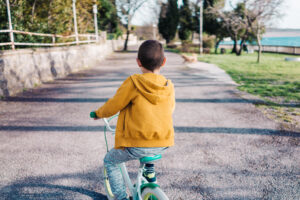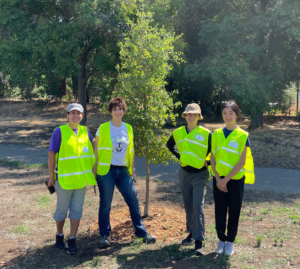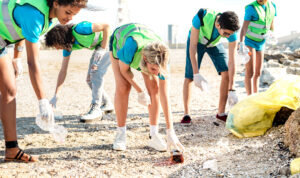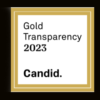Growing up in Silicon Valley during the 2010’s, I was surrounded by constant innovation and discovery. By five, I knew how to use an iPad, a laptop, and an iPhone. I was born the year Tesla released its first car. My life, from the beginning, coincided with the technology boom of the world. But as humankind was advancing, nature was slowly dying in the background.
When I was younger, I thought Earth Day was just a day of appreciation for plants, which it is, but now I realize that it is so much more. As a child, I was oblivious to the flaws of the world, since I was protected from reality by the love of my friends and family. Then, I began to read the news, which was full of climate related issues: “Coral reefs are dying” and “Amazon trees cut down for timber.” However, amongst all the negativity, there were little glimmers of positivity: “New ocean clean-up machine” and “Locals work together to save elephants.”
Now, as a freshman in highschool, I am very aware of the threat that humankind poses to itself, animals, and the earth. Finally, I understand that Earth Day is more than a celebration of nature–it’s a call, a plea, for change. I have read countless articles and watched innumerable videos about poaching, deforestation, sea level rising, and CO2 levels increasing, just to name a few of the thousands of climate-related problems.
I’m sure that by my age, most people know about climate change, but quite honestly, I have never seen anyone do anything about it. Unfortunately, up until now, I have been in that group of people who admire those who take action from afar, but are reluctant to help out themselves. We have discussions in class about climate change, but the general perspective of students is: “Climate change is horrible, but it’s such a huge issue that whatever we do won’t make a difference.”

Although we sometimes discuss what teens like us can do, it’s all talk. Kids are fueled largely by peer pressure–if their friends do it, so will they. The problem is, there’s not enough young people taking their climate footprint into their own hands to incite others to do the same. There are so many adults out there, such as the wonderful volunteers in this organization, but adolescents don’t relate with older people as much as they do with their own peers.
I’ve lived with a guilt of sorts for a while now, one that presses in the back of my mind and heart. I always liked to think about myself as passionate about the environment and its protection, but I didn’t follow through with my actions. I wrote essays about the benefits of limiting food waste, but did I always finish my own food? No. I sighed that not enough people care about poaching, but what did I do about that horrible problem? Nothing, except for watching videos and feeling sorry for the animals. It’s like imposter syndrome, but less severe: I group myself with the climate advocates and environmental protectors, but I have done nothing to prove that I am worthy of those titles.
I’m infinitely lucky to have found an organization like SAFE Worldwide that allows me to use my strengths to contribute to education and encourage everyone to help save the earth. Climate change feels like a massive issue, and it is. It feels like you can’t make much of a difference alone. That’s also true. But the thing is, we’re not alone. We stand side by side with scientists, activists, and passionate volunteers around the globe that are all working to protect our planet.
Recently, I participated in SAFE Worldwide’s tree planting in Vasona, my first volunteering experience. Throughout the three-hour planting, I felt so gratified to be positively contributing to creating a greener space for our community. I loved chatting with the other volunteers, and I felt connected to them through our shared goal of bettering the community, despite our age differences.

We are all just normal people, leading normal lives. But our normal lives are impacted in so many ways by climate change. Every week, the news covers another natural disaster, another thousand people dead. Well, we didn’t cause them, you might think. While that’s true, the rising number of natural disasters has everything to do with climate change, which we are partially responsible for.
So, if you are like me, just an average teen or young adult who cares about themselves, their family, and their friends, I implore you: please remember that you aren’t alone. Combined with the actions of everyone else’s, your actions have an impact. The lives of everyone and everything around you are intertwined, so anything you do to help animals, plants, or just your surroundings benefits those you love.

There are so many things you can do to better the community, such as going on VolunteerMatch to search for local opportunities, or bringing the change to your own school. As a teen, you might be worried that your classmates will judge you because of your passion for protecting the Earth, but trust me, they will feel nothing but admiration for your dedication. You could join an existing Green Team at your school, or even start a new one and recruit some friends. If other students see someone just like them taking action, they will be encouraged to join in. Volunteering with friends is a great way to spend time together while also positively impacting the world. Instead of waiting for someone to make a difference, be the change in your community, and inspire others to follow in your footsteps.

After reading this article, I hope that you, my reader, will remember this message:
A drop of water is insignificant, but a sea of 8 billion water droplets can carve canyons, flood cities, and take the world by storm. I didn’t realize this until recently, but it made all the difference in the way I view the world. Climate change is like a huge wildfire–spreading rapidly, consuming lives, wreaking havoc. Humankind is pouring gasoline into the raging inferno, and only a fraction of people are trying to douse the flame with water. You might feel alone with your single bucket fighting the flames, but if you look carefully, you can see those with buckets of their own, slowly but surely making progress. If we all combine our efforts to make a flood, we will be able to greatly lessen the destructive path of climate change.


